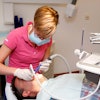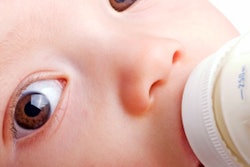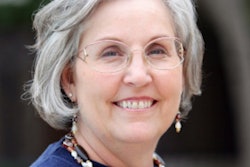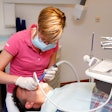
Mexican-American mothers know the importance of oral health for themselves and their children, but they report several obstacles to achieving ideal oral hygiene routines. A new study explores how overwhelmed and exhausted moms approach oral health in their daily lives.
In a series of focus groups, researchers from San Diego State University (SDSU) and the San Ysidro Health Center, also in San Diego, sat down with mothers at a community health clinic near the U.S.-Mexico border. The researchers documented what aspects of oral hygiene the mothers found most challenging and published their findings in Ethnicity & Health (April 11, 2017).
"Mothers recognized the importance of caring for primary teeth," wrote the authors, led by Tracy Finlayson, PhD, an associate professor at SDSU's Graduate School of Public Health. "All mothers believed they were primarily responsible for their child's oral health, and most held positive future expectations for their child's oral health."
Oral health as a family affair
Researchers know that children from low-income communities and racial/ethnic minorities are more likely to be affected by early childhood caries (ECC). This is particularly true for Mexican-Americans, even after other factors are accounted for.
While previous studies have explored oral health knowledge and behaviors of Mexican-American families, the authors believed more qualitative data were needed to further understand what factors might influence high ECC rates for this community. Therefore, they conducted focus groups with mothers who lived in or near San Ysidro, a community in San Diego just north of the U.S.-Mexico border.
Participants were recruited from the San Ysidro Health Center. All the participants were Spanish-speaking mothers who were the primary caregivers of at least one preschool-age child. Interviews were translated from Spanish to English by the researchers.
Overall, 36 mothers participated in the study. The majority of the participants were stay-at-home moms who were born in Mexico, and only 36% had any education beyond high school. During small focus groups, the mothers discussed their oral health knowledge, role in the family, influence of other family members, parenting styles, habits, and future outlook.
“Fathers and caregivers should be included in family-oriented efforts to support mothers.”
The majority of mothers knew the importance of oral health and could name basic strategies for keeping their kids' teeth healthy, including brushing at bedtime and limiting sugary drinks. However, most were not aware of other professionally recognized standards, such as to visit the dentist when a baby's first tooth appears.
"This suggests a need for more education to close knowledge gaps, especially about care-seeking and prevention, to be available in Spanish at a low reading level," the authors wrote.
The mothers also noted that they were oral health role models for their kids, saying that if they wanted their kids to have good oral hygiene, they should practice it as well.
"If they see us careless and not putting forth effort to brush our teeth they will do the same," one mother said. "If we show them that it is important, and we try our best to teach them, it will require less effort in our part."
Although the mothers recognized the importance of their own and their kids' oral health, many mothers found fathers and grandparents to be unsupportive of oral health goals. One mother said her parents give her son soda, even though she has repeatedly asked them not to. Many fathers also use candy as a way to get kids to cooperate.
Since most of the fathers don't attend dental appointments, they do not learn how to take care of their child's oral health. Many of the mothers wished more support and opportunities were available for fathers to learn about oral health and parenting.
"Intervention efforts are more likely to be successful if they account for the child's [socioeconomic status] and family context, including maternal psychosocial factors," the authors wrote. "Fathers and caregivers should be included in family-oriented efforts to support mothers."
More questions than answers
The study had a number of shortcomings, including that only 36 participants were recruited from one clinic. In addition, although the researchers originally recruited almost 100 participants, many canceled before the focus groups or simply didn't show up. Thus, the results may have been different if the researchers had interviewed those who canceled.
Nevertheless, the points the mothers made are thought-provoking and left the researchers with more questions to explore. For instance, after noting that the mothers, particularly single mothers, felt overwhelmed, crunched for time, and exhausted, they wondered how stress levels may affect both the mothers' and kids' oral health.
"Different strategies may be needed to promote behaviors related to hygiene, diet, and care-seeking," the authors concluded. "Psychosocial factors should be examined further to expand upon the themes identified here among Hispanic families and other groups."



















